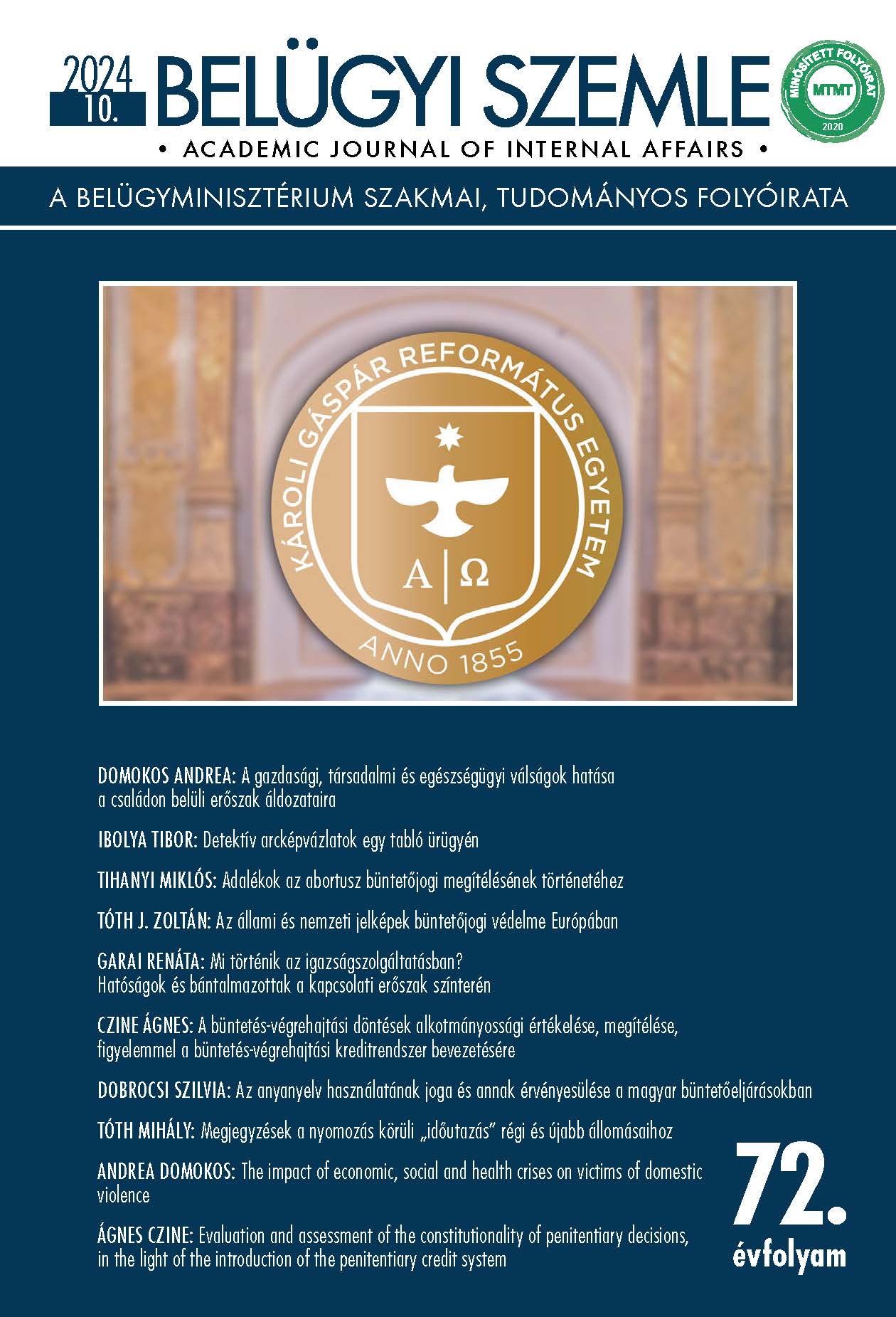Abstract
Aim: The goal of this study is to review Hungarian and international legal instruments in order to assess the relevant standards in this field. Enacting proper legal regulations, however, does not necessarily mean that the requirements of language assistance are also enforced in practice. Another goal, therefore, is the review of the relevant caselaw.
Methodology: This study reviews the relevant standards through the review of the relevant Hungarian legal regulations, as well as of the applicable human rights and EU legal instruments. The practical enforcement of the right to language assistance is analysed through the caselaw of the Hungarian Constitutional Court and regular courts.
Findings: The present Hungarian Criminal procedure code defines the right to language assistance and the use of translator and interpreter in details. The European Convention on Human Rights and the relevant Directive of the EU also regulate this right. After examining the relevant legal standards it becomes apparent that the present Hungarian legal regime provides more rights and offers a higher level of protection than what is required by the European standards. The consistent jurisprudence of the Constitutional Court considers the right to use mother tongue a crucial element of the equality of arms, an essential part of the right to fair trial. The caselaw of courts show that though there are some cases in which appeals also concern the use of mother tongue, the vast majority of these claims are not relevant for the merits of the case.
Value: The right to translation and interpretation is one of the main principles of criminal procedure. The right to language assistance is crucial for ensuring fair trial. In summary, the enforcement of the right to use one’s mother tongue meets the standards provided for in legal regulations and the jurisprudence of the Constitutional Court, but in this field continuous analysis is required in order to ensure compliance at all times.
References
Alkotmánybíróság 3244/2018 (VII. 11.) AB határozata
Alkotmánybíróság 3295/2021. (VII. 22.) AB számú határozata
Alkotmánybíróság 3362/2022 (VII. 25.) AB végzése
Bérces V. (2017). A határzárral kapcsolatos bűncselekményekre vonatkozó eljárási szabályokról – de lege ferenda. Eljárásjogi Szemle, 2(2), 45–52.
Debreceni Ítélőtábla Bf.I.526/2016/10. számú határozata
Dobrocsi Sz. (2023). A büntetőjog nyelve – változások a változatlanságban. Glossa Iuridica, 10(3), 79–91. https://doi.org/10.55194/GI.2023.3.4
Fővárosi Ítélőtábla 3.Bf.10/2007/32. számú határozata
Kontra M. (2021). Megjegyzések az anyanyelv fogalmáról. Fórum Társadalomtudományi Szemle 21(1), 23–30.
Kúria 1/2013. számú büntető elvi döntése
Kúria Bfv.II.760/2015/7. számú határozata
Kúria Bfv.501/2022/10. számú elvi döntése
Kúria Bfv.818/2018/9. számú elvi döntése
Kúria Bfv.1030/2020/8. számú elvi döntése
Kúria EBH 2013 B20. számú határozata
Pécsi Ítélőtábla Bf.I.163/2010/15. számú határozata

This work is licensed under a Creative Commons Attribution-NonCommercial-NoDerivatives 4.0 International License.
Copyright (c) 2024 Academic Journal of Internal Affairs

